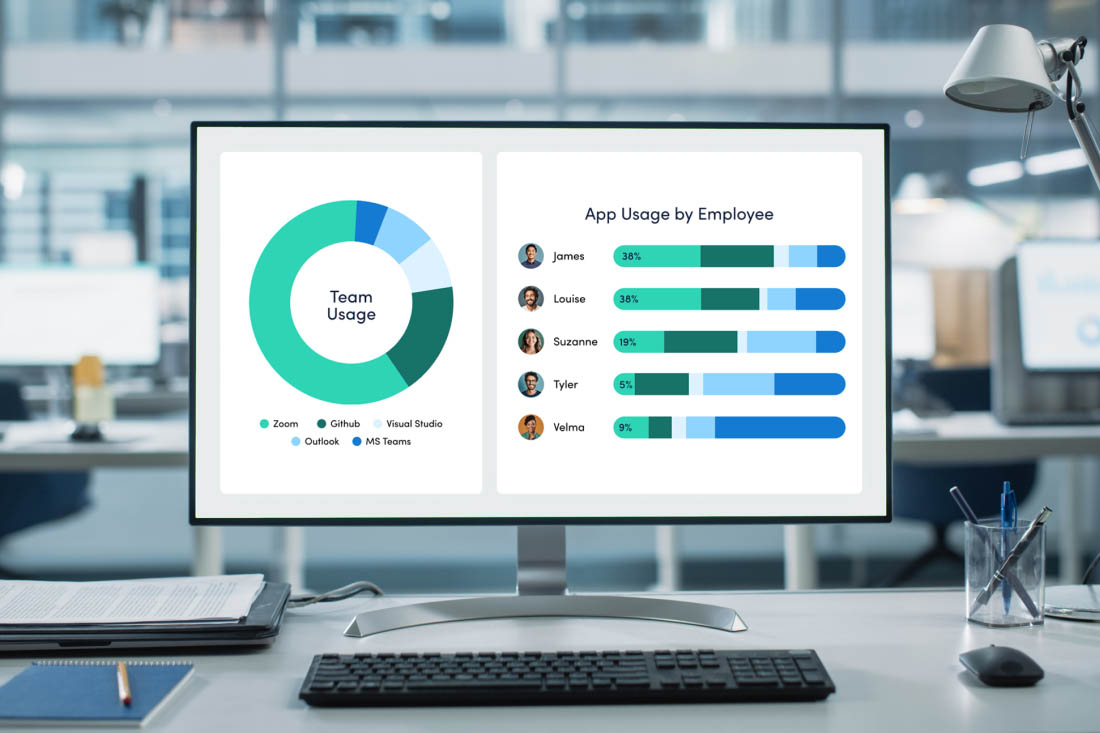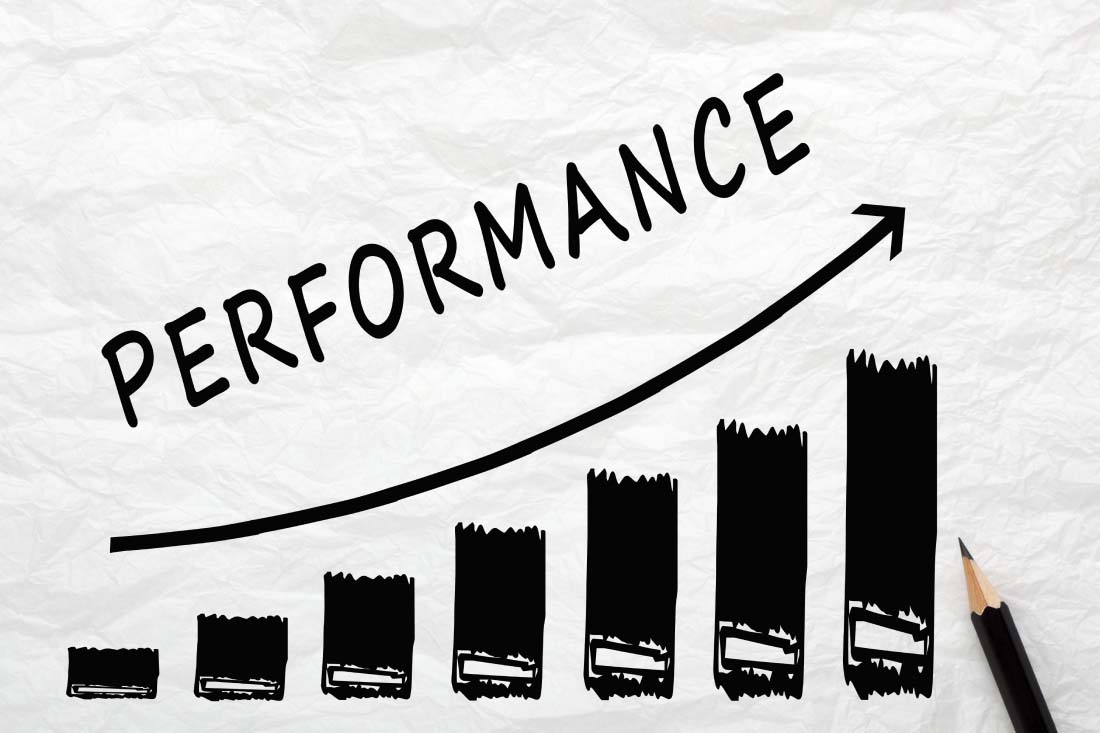HR leaders are using artificial intelligence more than ever — and it’s transforming the way organizations manage the workforce. One in four organizations now use AI to support human resources activities such as recruiting, performance management and learning and development.
Still, that means 75% of organizations are yet to embrace the power of AI for HR.
If this includes your company, consider this: Among the HR teams already using AI, 56% say it has the potential to improve collaboration, and nearly half say it’s become a bigger priority in the past year.
But what, exactly, does it mean to apply AI to human resources? Keep reading for insights and use cases you can start applying today.
AI for HR: Past, present and future
Initially, artificial intelligence applications for HR were relatively simple. Early systems focused on automating basic administrative tasks like resume screening and candidate tracking. These tools used keyword matching to filter job applications and aid in recruitment.
Then, as machine learning algorithms became more sophisticated, so did HR technology. It allowed software developers to create HR tools that not only screen resumes for keywords but also match candidates to job descriptions and create preliminary rankings.
Today, companies leverage AI for HR in many different ways, such as:
- Sentiment analysis for employee engagement surveys
- Personalized learning and development recommendations
- Advanced natural language processing for interview analysis
Looking ahead, human resources teams still have a lot to look forward to. Like predictive HR analytics to improve employee retention. Real-time analysis to identify skills gaps and capacity planning needs. More applications of generative AI in areas like internal communications and talent acquisition.
These developments have not — and will not — replace HR professionals. Rather, AI will increasingly serve as a collaborative tool to help HR teams perform key responsibilities faster, better and more accurately.
Yet despite these advancements, many HR departments still lag behind when it comes to embracing AI. Just 38% of HR leaders are piloting, planning or implementing generative AI. What’s more, 67% do not plan to add AI-related roles to their departments within the next 12 months.
If your organization currently falls into this bucket, we have good news. Opening the door to AI unlocks a treasure trove of opportunities for your entire HR team.
6 practical use cases of AI for HR
Leveraging AI for HR doesn’t have to be complicated. In fact, with the number of options across department functions, AI tools ultimately make your job easier. You just need to know where to start.
Let’s explore six essential AI use cases every HR leader should consider to stay ahead in today’s competitive landscape.
1. Recruiting and talent management
As part of the recruitment process, AI holds transformative potential. Automating time-consuming tasks frees HR professionals to focus on finding the right fit for each role.
One of the most significant impacts of AI in recruitment? It allows you to not only hire faster but also identify ideal candidates based on actual data. AI-powered tools analyze resumes, screen candidates and even schedule interviews, drastically reducing the time to hire. For example, one company cut its average time to hire by more than 50% with AI-driven automation that enabled recruiters to focus on the final, critical stages of hiring. This adaptability allows organizations to refine recruitment strategies based on real-time data, ensuring alignment with the evolving job market and candidate expectations.
In addition, AI technologies enhance candidate assessment by using algorithms to evaluate skills, experiences and behavioral traits — all of which leads to higher-quality hires. Tools such as predictive analytics enable HR leaders to forecast candidate success based on historical data. This data-driven approach empowers you to make more informed decisions, reducing bias in the hiring process and improving workforce diversity.
And if you want to go even deeper, look for AI tools designed for gamified assessments and virtual simulations. These allow candidates to showcase their skills in real-world scenarios. They not only provide a more engaging experience for potential employees but also offer deeper insights into their capabilities, ensuring you select individuals who are not only qualified but also a strong culture fit.
2. Workforce planning
Do you engage in workforce planning? If not, now’s the time to start. And AI is your secret weapon for building an effective strategy — one that empowers you to hire faster, boost retention, enhance employee productivity and reduce the need for overtime.
The key is to find workforce planning software capable of analyzing employee data to uncover trends. The right AI assesses your current workforce to analyze skills gaps, predict potential turnover and forecast future needs. This information enables your team to create targeted training programs, develop strategies for re-engaging employees and accurately calculate headcount — whether that means identifying untapped capacity among current employees or hiring more staff.
3. Employee engagement and retention
Engagement plays a critical role in everything from your retention rate to overall organization success. But measuring and improving employee engagement is tricky. AI solutions make it much easier to obtain accurate insights, identify causes of disengagement and even predict (and prevent) voluntary turnover.
With AI to analyze data, it’s much easier and faster to identify patterns that indicate potential employee turnover. For example, it’s not uncommon for top performers to take on too much and quietly burnout — long before HR spots the signs. By the time these employees resign, the damage has already been done. But using AI, you can analyze what happened the last time a critical employee left voluntarily and then use those insights to prevent burnout among current employees moving forward.
AI is also valuable for creating a more personalized employee experience. This is especially true if you collect daily employee activity data. By using AI to analyze employee preferences and behaviors, you gain recommendations for professional development programs, communication strategies, personalized benefits and more — ones that precisely match your employees’ needs. It’s like having a committee of dedicated analysts capable of evaluating massive amounts of data in a fraction of the time.
4. Learning and development
In a constantly evolving work environment, the need for continuous learning and development is critical. AI helps HR leaders customize training programs to meet the specific requirements of your workforce.
First and foremost, AI tools make it easy to customize your training programs. For example, AI-enabled learning management systems assess individual employee skills and suggest personalized training paths. By using algorithms to analyze learning styles and professional goals, you ensure each employee receives the training they need to succeed.
In addition, AI solutions track employee progress with ongoing assessments. This allows you to accurately gauge the effectiveness of your training initiatives. You’ll know when to invest more in a program that’s working and when to explore other options.
5. Employee experiences
Looking to improve the employee experience? The latest AI developments empower you to do this, too.
For example, some AI tools are designed to help create a tailored onboarding experience for new hires by quickly analyzing an employee’s background, skills and learning style. The resulting personalized learning paths and training recommendations help new hires integrate more quickly and feel supported from day one. Better yet, adaptive learning platforms even suggest specific courses, resources and development opportunities that align with an individual’s career goals and skill gaps.
AI-powered chatbots provide another opportunity to support the employee experience. These tools make it possible to offer 24/7 support for HR-related questions and quickly resolve common workplace inquiries. They not only help employees feel supported and heard, but often offer personalized guidance on benefits, policies and resources.
6. HR analytics and reporting
Last but far from least, AI has revolutionized HR analytics and reporting. This realm of research has long served HR departments looking to reduce turnover, increase retention, improve engagement, foster career development and boost ROI. And now, with AI for HR, it’s easier than ever to gain deep insights into important workforce dynamics. AI-powered data analysis allows you to act on performance metrics in record time to reduce costs and enhance productivity.
Furthermore, AI tools uncover trends and patterns that may not be apparent through traditional analytics methods. Understanding these trends helps your team address potential challenges as they surface.
Automatically collect HR insights with ActivTrak
Integrating AI in your daily HR practices presents a wealth of opportunities. From optimizing key HR processes to enhancing employee engagement and personalizing learning, AI for HR is poised to become an indispensable asset in human resource management. Embracing these technologies will not only enhance efficiency but also contribute to a thriving culture and better, faster business outcomes.
Enabling HR professionals with the right insights is the first step to successful AI adoption. And ActivTrak is here to help.
Our award-winning workforce analytics cloud provides unparalleled insights into your people, processes and technology. More than 9,500 organizations use this data to improve workforce productivity and ensure every employee has exactly what they need to succeed.
Create your free account to get started today. And if you have questions about making the most of your employee data and AI opportunities, get in touch to hear from an ActivTrak expert. Our specialists are on hand to answer your questions and help you get set up for success.





